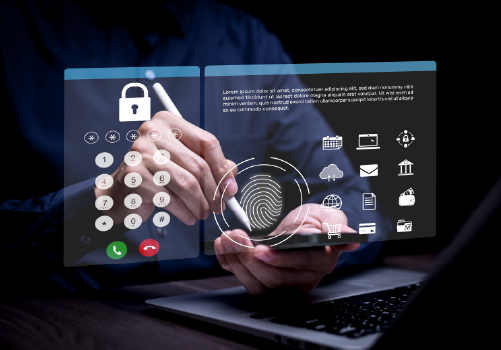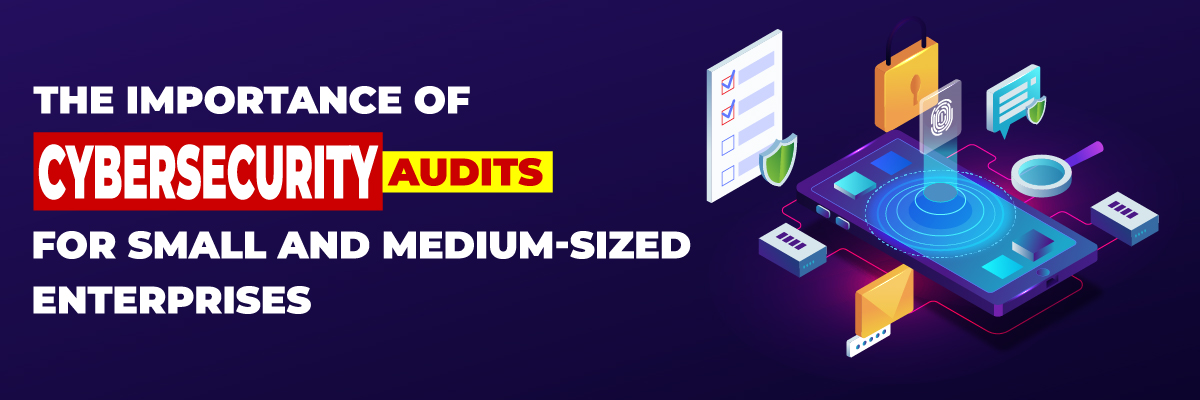Cybersecurity Audits: Ignorance is Not Bliss
Regardless of size, cybersecurity is paramount for all businesses. Small and medium-sized enterprises (SMEs) are particularly vulnerable to cyber-attacks due to often limited resources and expertise in cybersecurity. This makes regular cybersecurity audits essential for identifying vulnerabilities, ensuring compliance, and protecting sensitive data. This article delves into the importance of cybersecurity audits for SMEs, offering insights into their benefits, processes, and best practices.
Why SMEs are Prime Targets for Cyber Attacks
Small and medium-sized enterprises often lack the robust security infrastructure of larger corporations, making them attractive targets for cybercriminals. Limited budgets, fewer IT resources, and a lack of cybersecurity awareness contribute to this vulnerability. Cyber-attacks on SMEs can result in significant financial losses, reputational damage, and legal consequences.
What is a Cybersecurity Audit?
A cybersecurity audit is a comprehensive review of an organization’s information systems, security policies, and procedures. It aims to identify vulnerabilities and ensure that security measures are effective and compliant with relevant regulations. This audit assesses everything from network security to employee practices, offering a detailed understanding of the organization’s cybersecurity important posture.
Benefits of Regular Cybersecurity Audits
- Improved Security Posture– Regular audits help SMEs stay ahead of emerging threats by identifying and mitigating vulnerabilities. This proactive approach enhances the overall security posture of the organization, making it more resilient against cyber-attacks.
- Compliance with Regulations– Cybersecurity audits ensure that SMEs comply with industry regulations and standards such as GDPR, HIPAA, and PCI DSS. Compliance is crucial for avoiding legal penalties and maintaining customer trust.
- Risk Management– Audits provide a clear picture of the risks facing an organization and offer actionable recommendations for mitigating those risks. This systematic approach to risk management helps SMEs prioritize security investments and resources effectively.
- Enhanced Customer Trust– Demonstrating a commitment to cybersecurity through regular audits can enhance customer trust and loyalty. Customers are more likely to engage with businesses that prioritize the protection of their data.
Steps to Conduct a Cybersecurity Audit
- Define the Scope– Clearly define the scope of the audit, including the systems, processes, and data to be reviewed. This ensures that the audit is comprehensive and focused on critical areas.
- Gather Information– Collect relevant data on the organization’s cybersecurity policies, procedures, and systems. This includes network diagrams, security policies, and incident response plans.
- Assess Vulnerabilities– Use vulnerability scanning tools and techniques to identify weaknesses in the organization’s systems. This step involves both automated scans and manual assessments.
- Evaluate Compliance– Review the organization’s compliance with relevant regulations and industry standards. This includes checking for adherence to GDPR, HIPAA, PCI DSS, and other applicable regulations.
- Report Findings– Compile a detailed report of the audit findings, highlighting vulnerabilities, compliance gaps, and areas for improvement. This report should include actionable recommendations for enhancing cybersecurity.
- Implement Recommendations– Work with IT and security teams to implement the recommended improvements. This may involve updating security policies, deploying new technologies, or enhancing employee training programs.
Common Challenges in Cybersecurity Audits
Resource Constraints
Many SMEs struggle with limited budgets and IT resources, making it challenging to conduct comprehensive audits. Prioritizing critical areas and leveraging third-party expertise can help overcome these constraints.
Evolving Threat Landscape
The cybersecurity threat landscape is constantly evolving, with new threats emerging regularly. Staying up-to-date with the latest threats and adapting audit processes accordingly is essential.
Complexity of Regulations
Navigating the complex web of cybersecurity regulations can be daunting for SMEs. Partnering with experts who understand these regulations can simplify the compliance process.
Best Practices for Effective Cybersecurity Audits
- Regular Audits– Conducting regular audits, at least annually, helps ensure that security measures remain effective and up-to-date with the latest threats for better data breach prevention.
- Comprehensive Scope– Ensure that the audit scope covers all critical areas of the organization’s information systems, including network security, small business data protection, and access controls.
- Skilled Auditors– Engage skilled and experienced auditors who have a deep understanding of cybersecurity principles and practices. This ensures a thorough and accurate assessment.
- Continuous Improvement– Treat cybersecurity audits as part of a continuous improvement process. Use audit findings to drive ongoing enhancements in security policies, procedures, and technologies.
How to Choose the Right Cybersecurity Audit Provider
- Expertise and Experience– Select a provider with a proven track record of conducting cybersecurity audits for SMEs. Look for certifications, industry experience, and client testimonials to gauge their expertise.
- Comprehensive Services– Ensure that the provider offers comprehensive audit services that cover all critical aspects of cybersecurity, including network security, data protection, and compliance.
- Customized Approach– Choose a provider that tailors their audit approach to the specific needs and challenges of your organization. A one-size-fits-all approach is less effective than a customized strategy.
- Post-Audit Support– Look for a provider that offers post-audit support, SME cybersecurity solutions to help implement recommendations and address any identified vulnerabilities. Ongoing support is essential for maintaining a strong security posture.
 How to Prepare for a Cybersecurity Audit
How to Prepare for a Cybersecurity Audit
1. Review Policies and Procedures
Ensure that all cybersecurity policies and procedures are up-to-date and comprehensive. This includes incident response plans, access control policies, and data protection measures.
2. Conduct Internal Assessments
Perform internal assessments to identify common cyber threats to SMEs and areas for improvement. This proactive approach helps ensure that the organization is prepared for the formal audit.
3. Educate Employees
Raise awareness among employees about the importance of cybersecurity and their role in maintaining security. Conduct regular training sessions to reinforce best practices.
4. Gather Documentation
Compile all relevant documentation, including network diagrams, security policies, and incident response plans. Having this information readily available streamlines the audit process.
Cybersecurity Audits and Compliance
GDPR Compliance
For SMEs operating in Europe, ensuring compliance with the General Data Protection Regulation (GDPR) is critical. Cybersecurity audits help identify and address gaps in GDPR compliance.
HIPAA Compliance
Healthcare SMEs must comply with the Health Insurance Portability and Accountability Act (HIPAA). Audits assess the security of protected health information (PHI) and ensure compliance with HIPAA requirements.
PCI DSS Compliance
SMEs that handle payment card data must comply with the Payment Card Industry Data Security Standard (PCI DSS). Cybersecurity audits help ensure that payment systems are secure and compliant.
Cybersecurity Audit Checklist for Small Businesses
Conducting regular cybersecurity audits is essential for small businesses to protect sensitive information and prevent data breaches. Begin by reviewing your current security policies, ensuring they align with industry standards. Assess employee awareness by verifying that everyone understands basic cybersecurity protocols. Evaluate network security measures, like firewalls and antivirus software, and confirm that all devices are updated with the latest patches. Regularly back up critical data and test your incident response plan to minimize downtime during a cyber-attack. Implementing these practices helps emphasize why cybersecurity is important and is a proactive approach to data breach prevention. An effective cybersecurity for small business data protection strategy reduces vulnerabilities and strengthens overall data protection.
How Protected Harbor Stands Out from the Competition
Comprehensive Security Solutions
Protected Harbor offers a comprehensive suite of cybersecurity solutions tailored to the specific needs of small and medium-sized enterprises with a special focus on cybersecurity for small business. Unlike generic providers, they focus on understanding the unique challenges faced by each business and provide customized security measures that effectively address these issues.
Experienced Team of Experts
Protected Harbor boasts a team of seasoned cybersecurity professionals with extensive experience in protecting SMEs across various industries. Their expertise ensures that every audit and security measure is conducted with the highest level of proficiency, offering clients peace of mind and confidence in their security posture.
Proactive Approach to Threat Detection
One of the standout features of Protected Harbor is their proactive approach to threat detection. They utilize advanced tools and technologies, including AI and machine learning, to continuously monitor and identify potential threats before they can cause harm. This forward-thinking strategy helps businesses stay ahead of cyber threats and reduces the risk of data breaches.
Emphasis on Compliance
Compliance with industry regulations is a critical aspect of cybersecurity for SMEs. Protected Harbor places a strong emphasis on ensuring that their clients meet all relevant regulatory requirements, including GDPR, HIPAA, and PCI DSS. Their thorough audits and compliance checks help businesses avoid legal penalties and maintain a strong reputation.
Ongoing Support and Training
Protected Harbor goes beyond one-time audits by offering ongoing support and training for their clients. They provide continuous monitoring, regular updates, and employee training programs to ensure that businesses remain vigilant and well-protected against evolving cyber threats. This commitment to ongoing support sets them apart from providers who offer only periodic services.
Tailored Incident Response Plans
In the event of a cyber incident, having a robust incident response plan is crucial. Protected Harbor develops tailored incident response plans for each client, ensuring that they are prepared to respond swiftly and effectively to any security breach and common cyber threats for SMEs. Their customized approach minimizes downtime and helps businesses recover quickly from cyber incidents.
Focus on Building Trust
Building trust with clients is a core principle of Protected Harbor. They prioritize transparent communication and work closely with businesses to develop security strategies that align with their goals and values. By fostering strong relationships and delivering exceptional service, Protected Harbor has become a trusted partner for many SMEs.
Conclusion
Protected Harbor stands out in the cybersecurity industry by offering tailored, comprehensive solutions, a proactive approach to threat detection, and a strong focus on compliance and ongoing support. Our experienced team, commitment to continuous improvement, and dedication to building trust make us an ideal partner for small and medium-sized enterprises looking to enhance their cybersecurity posture. Get a free audit today with Protected Harbor and experience the difference that expert, personalized security can make for your business.






